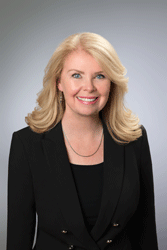Physicians: Practice What You Preach
 It’s often said that doctors make the worst patients. One would suppose that, given their training and knowledge, physicians would be well inclined to take appropriate steps to keep themselves healthy whether they are patients or not. But research detailing high rates of physician burnout suggests that this is hardly the case. Dr. Hilary McClafferty, an Associate Professor in the Department of Medicine at the University of Arizona and an American Board of Physician Specialties® (ABPS) Diplomate in Integrative Medicine, writes extensively about the link between physician health and wellness and patient outcomes. She calls for a distinct shift in how the medical community views this topic.
It’s often said that doctors make the worst patients. One would suppose that, given their training and knowledge, physicians would be well inclined to take appropriate steps to keep themselves healthy whether they are patients or not. But research detailing high rates of physician burnout suggests that this is hardly the case. Dr. Hilary McClafferty, an Associate Professor in the Department of Medicine at the University of Arizona and an American Board of Physician Specialties® (ABPS) Diplomate in Integrative Medicine, writes extensively about the link between physician health and wellness and patient outcomes. She calls for a distinct shift in how the medical community views this topic.
While all doctors would certainly benefit from taking better care of themselves, says Dr. McClafferty, young physicians entering a medical culture that pays scant attention to physician self-care are the ones who stand to gain the most. After all, studies show that symptoms of burnout and depression start as early as medical school. It makes sense, therefore, that for lasting self-care improvements among individual physicians to occur, cultural and institutional changes should happen simultaneously.
Workplaces That Promote Well-Being
If we assume that leaders of medical organizations expect doctors on their staff to provide the best health care possible, it follows that fostering workplace values that promote physician well-being should be a top priority. Dr. McClafferty points to an article by Maslach and Leiter as an excellent guide on how to embark on a program of improvements. In summary, low rates of physician burnout are associated with favorable organizational factors such as a sense of personal control, absence of role conflict, fair treatment, social support, the alignment of workplace and individual values, and appropriate rewards.
In terms of cultural progress, Dr. McClafferty, formerly a practicing pediatrician in emergency medicine, cites the Pediatric Burnout-Resilience Study Consortium as an exemplary initiative, with more than 30 pediatric residency programs committed to their trainees’ well-being. She says that further progress can be made if young doctors were introduced to evidence-based coping skills – mindfulness practice, for instance – which can help them effectively manage the challenges of a medical career. Over time, as more doctors attend to their own health, the medical community may grow to view self-care care as a normal practice.
Of course, lifestyle choices also play a significant role in physician well-being, as they can help or hinder how doctors deal with the stress that can lead to burnout. Since doctors are experts on their own lives, Dr. McClafferty says, they will be able to discern whether any behaviors need to be changed to attain a more balanced life. Areas to focus on in a self-case assessment should include fundamental concerns like nutrition, sleep, physical activity, social connections, and recreational activities. Dr. McClafferty also encourages physicians to schedule time for self-reflection, a moment to breathe and relax, to prepare oneself mentally for the challenges ahead. The calm and resiliency engendered by self-reflection can then benefit the entire workplace when doctors become models of positive change.
“We need to look out for each other as physicians,” Dr. McClafferty says. “An integrative medicine approach provides an effective template to do this.”
What Is Integrative Medicine?
Integrative medicine, according to the American Board of Integrative Medicine (ABOIM), makes use of all evidence-based therapeutic approaches, healthcare professionals, and disciplines to achieve optimal health and well-being. The ABPS offers integrative medicine certification through the ABOIM.
Integrative medicine is gaining popularity among physicians who value its comprehensive approach to treating patients—addressing their physical, mental, and spiritual health. Despite skepticism regarding its scientific rigor compared to conventional Western medicine, integrative medicine is deeply rooted in thorough scientific study. It aims to improve overall health and healing by prioritizing the doctor-patient relationship, considering all aspects of an individual’s health.
In essence, integrative medicine combines the most effective practices of traditional medicine with time-tested alternative and complementary methods, aiming to deliver optimal patient care. This approach not only treats illnesses but also enhances the well-being of patients by focusing on prevention and holistic care.
Eligibility Requirements of the ABOIM
To apply for initial board certification in integrative medicine, candidates must first meet the general requirements set by the ABPS. These requirements include graduating from a recognized allopathic or osteopathic medical school in the U.S., Canada, or internationally, and holding a valid, unrestricted license to practice medicine in the United States, its territories, or Canada. The ABOIM sets additional specific eligibility criteria, including:
- Completion of a residency accredited by ACGME, AOA, the Royal College of Physicians and Surgeons of Canada (RCPSC), or the College of Family Physicians of Canada (CFPC).
- Holding current or previous board certification from a Member Board of the ABPS, the American Board of Medical Specialties (ABMS), the AOA, the RCPSC, or the CFPC.
- Completion of an ABOIM-approved fellowship in integrative medicine.
- Submission of an up-to-date curriculum vitae detailing medical education, degrees obtained, and work experience.
- Providing three letters of recommendation from Diplomates of an ABPS, ABMS, AOA, RCPSC, or CFPC board of certification.
Once these criteria are met, candidates must pass a computer-based written exam to obtain ABOIM board certification. All ABPS certificates are valid for eight years, expiring on December 31 of the eighth year.
To learn more about the ABOIM, contact the ABPS today.










